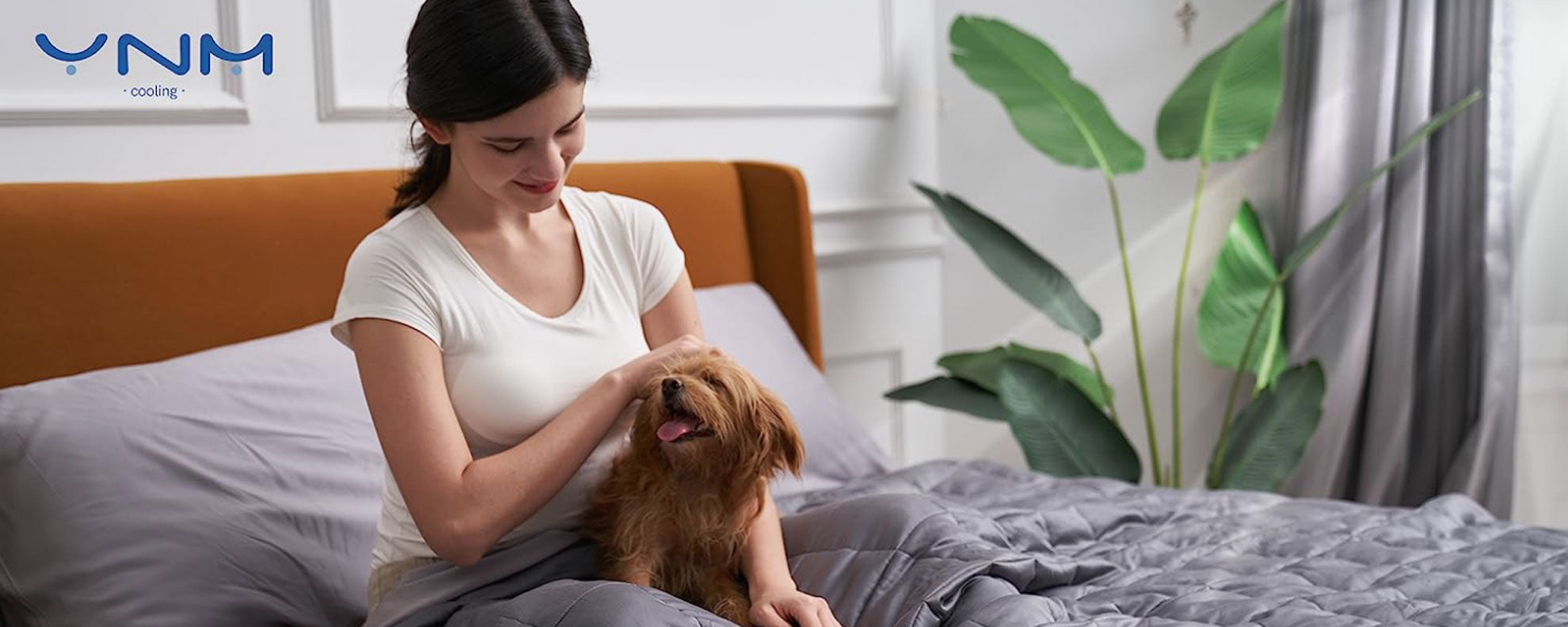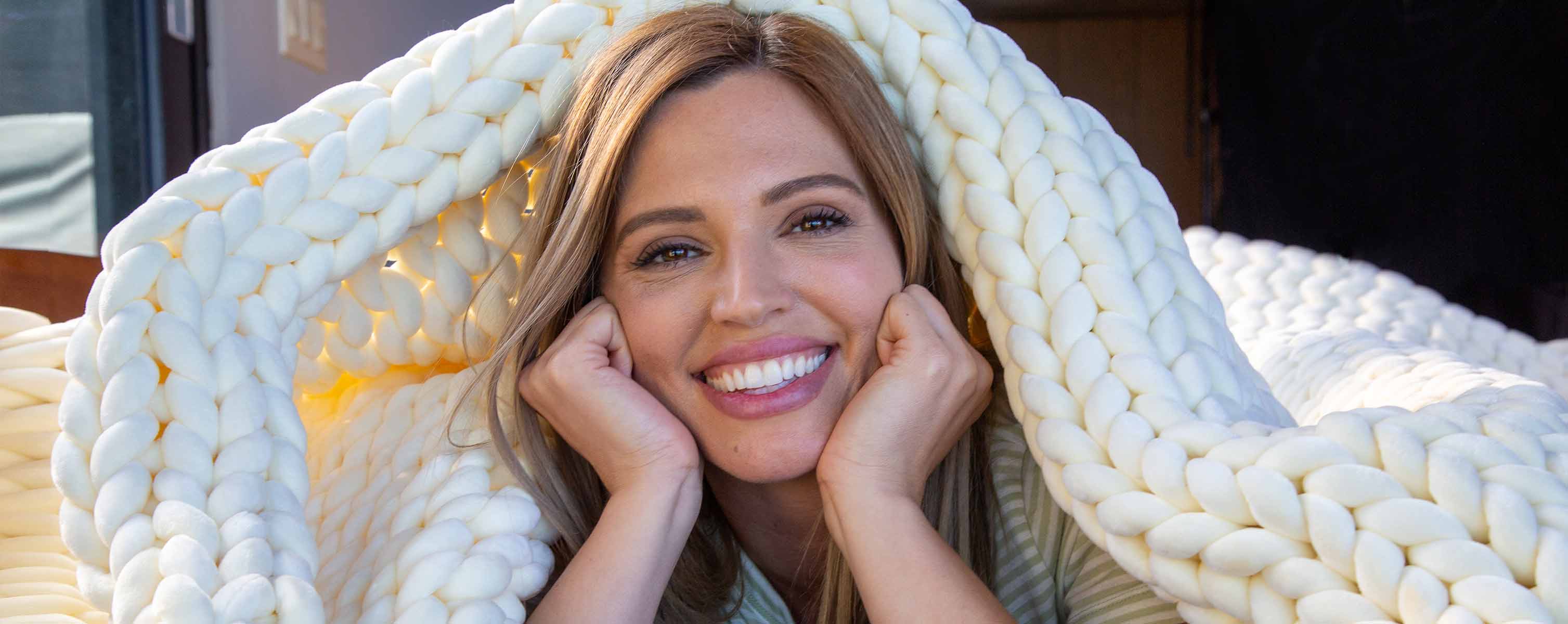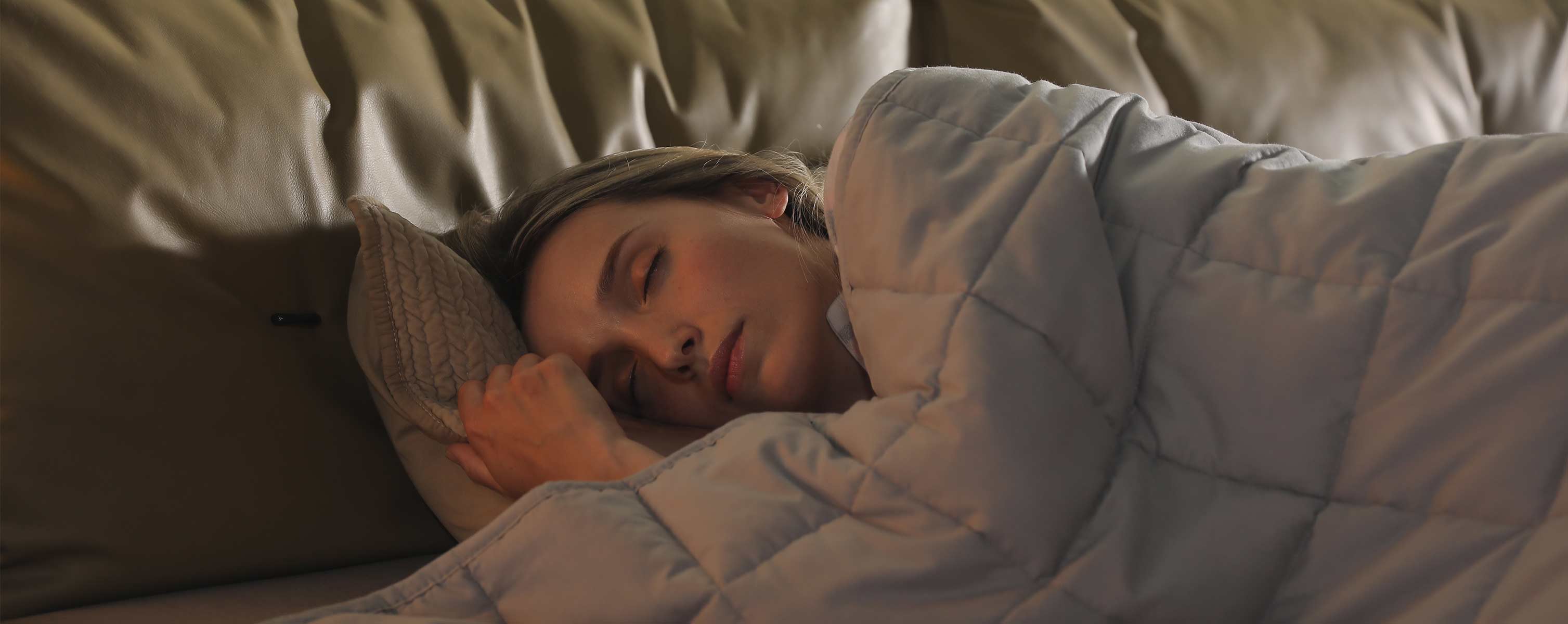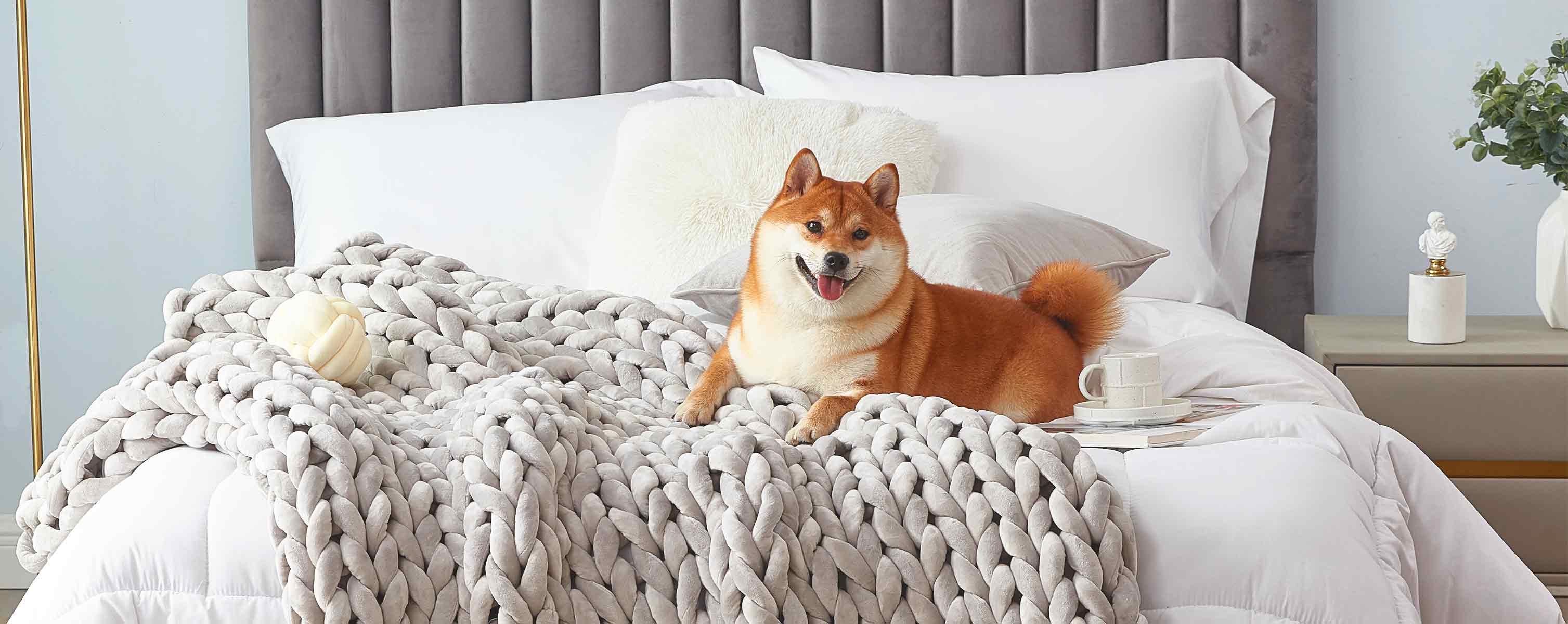A weighted blanket will weigh between 4-50 pounds. Many weights are accessible; however, how do you tell the right one for you? Your size of the body determines the required blanket weight.
The size of the weighted blanket should be ten percent of your body weight, as per experts, for it to fit your frame. The formula for children or older adults is 10 percent of body weight plus 1-2 pounds.
Have you ever tried this weighted blanket? If you need more time, you might wonder about the size required, heaviness, and whether the weighted blanket can be too heavy. If that’s it—you're on the right page!
What Size Weighted Blanket Should I Get?
A weighted blanket comes in 3 standard sizes: king, queen, and twin. Other size choices are available such as teen sizes, custom sizes, and California king sizes. However, note that the adult and kids weighted blankets sizes are labeled regular blankets; they’re smaller than those standard ones by some inches – for great reason.
Any weighted blanket hanging over the edges of the bed can make it slide off your bed and to your floor at night.
A general thumb rule is sizing down from the mattress. Individuals with a full or queen bed should get the twin-size weighted blanket; for your king mattress, use a full, queen-size, or king-size blanket. Couples using a king-sized bed and wanting to sleep in one blanket should select a king-sized or queen-sized blanket.
Remember, those with a mental or physical health condition must consult a physician, therapist, or psychologist/psychiatrist first.

How Heavy Weighted Blanket Should Be?
First, ask for the correct weight if you're buying a weighted blanket on the doctor's, occupational therapist's, or other medical expert's advice as part of the therapy for sleep apnea, insomnia, or another ailment.
Better yet, see if your medical professional or occupational therapist has a weighted cover for adults you can test. Therapists frequently keep these weighted blankets on hand to provide their patients with deep touch pressure. Note that whether use by adults or kids, it's crucial to ensure the weight by the person using it.
You can choose the weight that will work best for you by giving a weighted blanket a "test drive" to get a sense of it. You can also take into account the following:
- What kind of accessory do you like?
- What design offers you an excellent rest?
- Which combo has the most considerable calming effect?
As mentioned earlier, the perfect weighted cover weight is about 10% of the body weight. Many weighted covers come in various weights and sizes to accommodate several body weights. If you’re unsure what works excellently, experts advise rounding down and choosing the lighter-weighted blanket.
Professionals claim that a weighted blanket like a knitted one is a single-use product. If you place two people in those weighted blankets, you’ll get several turning and tossing, and the cover will inevitably end up on the floor or crumpled. If used by two individuals, it's best if their have the same weight. If they have a significant weight difference, it's advisable to use the weighted blankets separately.
Also, dual-use creates weight distribution issues, implying neither sleeper feels the full advantage of deep pressure therapy. Secondly, experts chose the size since it’s great for most people- you cover the entire body, including your feet and hands.
Once it comes to weighted blanket size, what’s vital is that they’ll cover you, not the bed. A vast blanket can hang over the bed edges, often distributing or sliding down the weight unevenly and awkwardly.
Blanket Weight Maximum Limit
The weighted blankets perform by offering deep pressure therapy. A standard weight, such as a comforting, soft hug, aids you in falling asleep. An average adult will lie under many weighted covers without affecting their pulse, blood circulation, and heart rates.
A soft YNM weighted blanket does more than assist you in sleeping well and fighting insomnia. It helps with pain disorders, restless leg syndrome, and ADHD. Also, it reduces the level of cortisol to ease tension and stress.
Note that the heaviest blanket is 30 pounds; it will provide the advantages of deep pressure stimulation. A weighted cover that might not be secure for use, particularly for someone with underlying medical issues such as claustrophobia, lung disorders, or mobility issues.
Take Away
Lately, weighted blankets have been increasingly popular with people battling insomnia and nighttime anxiety. For effectiveness, a weighted cover needs to offer sufficient pressure to have a soothing effect without much pressure, such that the person feels uncomfortable or trapped.












